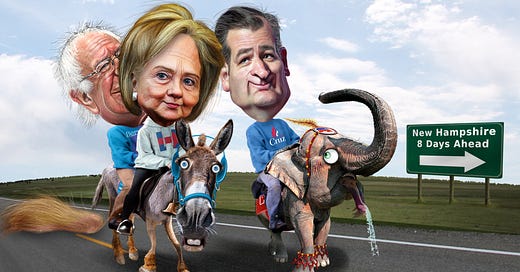Putting aside the 2020 coding fiasco that nearly sunk the Iowa caucus’s first-in-the-nation presidential primary status, the cumbersome caucus system (a holdover from the 19th century) has always been more about exclusion than inclusion—by design. After all, this is a purely partisan vote open only to registered Democrats and Republicans that takes place on one evening in January. Damn the weather. Damn those who have to work that evening. Damn those who can’t find a sitter. Damn those who don’t have a ride to a caucus site. And, at least for the Democrats, damn the foundation of U.S. elections: the secret ballot.
All this is reminiscent of the not-so-distant past when, according to the Library of Congress, “leaving election control to individual states led to unfair voting practices in the U.S.” At first, “white men with property were the only Americans routinely permitted to vote.” Eventually, white men…
Keep reading with a 7-day free trial
Subscribe to The First Person with Michael Judge to keep reading this post and get 7 days of free access to the full post archives.



